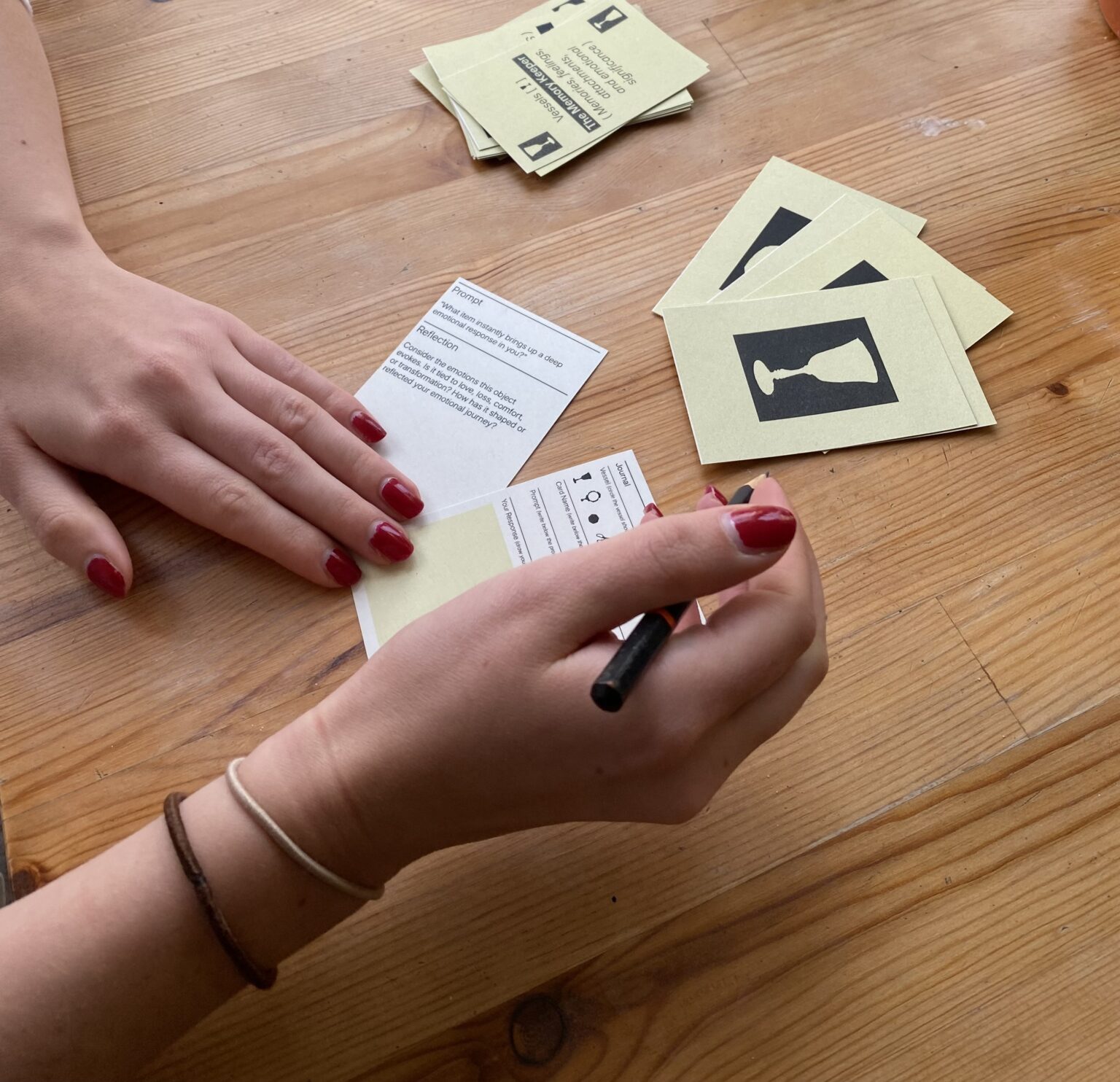Innovation & Technology Product Design
Gabriella Moretti-Miles

Hi, I’m Gabriella a multidisciplinary designer who excels in transformative practices.
I’m fascinated by the art of curation and storytelling. My design philosophy prioritises cross cultural communication, bringing together ecological and social theory to inform design.
Through my work I like to embody principles of ecology specifically focusing on regenerative and sustainable narratives through re-imaging our current systems to promote just and positive change.
Driven by a passion for vernacular and material cultures I’m interested in design that reflects cosmopolitan localism and promotes environmental consciousness enabling people to see value in new ways.
( Forging connections ) ( inspiring change )
( creating environmentally conscious resonance )

Creating Confluences
My project proposes a personal, contemplative alternative understanding of socio-ecological relationships, through material cultures beyond economic frameworks from a socio-holistic lens drawing from human experience anchoring these social streams.
Our current scenario sees the expansion of material extraction and disposal whilst use further decreases. This project works towards a considered and extended use stage focusing on a reframing of linear consumptive models of a product’s life cycle and reimagining these as circularly evolving dynamic systems.
This system is made integrative and accessible through a cognisance tool two card decks, the object oracle, which looks to bridge the gap between individual and system and create correspondences between people and objects in a personal, contemplative alternative engagement presented as a reconsideration ritual.
To nurture slow flows, in which resource use is extended, I explored value transfers. Through object-oriented interviews, I understood that there were instances whereby the previous value was exchanged, extended or constructed to prolong the life cycle of the personal possession.
These acts of re (considered) value helped to recondition the object reinstating it with value. These moments not only give space to a moment of reconsideration of our current system but also allow us to react to it. These re-qualification’s build an emotional durability bringing together material logic and meaning.
Objects have become symbols of our society, the way in which we interact with them reflects the society we want to build today.
Postcards on Place
This collaborative design project, delivered in partnership with Nesta’s Collective Intelligence Design team, challenged students to explore the future of collective decision-making around energy systems in 2035. Working with Human and Artificial Collective Intelligence for Decision-making (HACID) integrates AI technologies such as knowledge graphs with expert crowdsourcing and web-scraped data to support decision-making in high-stakes areas.
My proposal is a crowdsourcing co-op led project that brings local entities together to explore through imagery, writing and material samples their community environment and input into local decision making around placement of local renewable energy infrastructure. This project protects situated knowledge through community-led action. Citizens generate data on experiences, ideas and identification and classification of local sites.
Project Value:
(1) Protecting Situated Knowledge: Guides an understanding of the local ecologies and geologies helping to identify and frame areas of scarcity and abundance.
(2) Devolution: Adopting participatory approaches through grassroot community led
initiatives by creating the opportunity for individuals to co-create, co-evolve and co-respond to local energy projects. This helps to empower individuals and strengthen social bonds, giving a voice to people who might not otherwise be heard.
(3) Sustainability: Understanding people’s relationship with place and the environment to construct healthy equitable symbiotic communities built on democratic foundations.
Making transformational impact in building new inclusive cultures, that use collective intelligence methods such as crowdsourcing help solve complex problems. That which then promotes and expands, addressing and including the unconventional, giving space for diverse and unique ideas and opinions lowering the barrier to participation so that all entities are present and accounted for.







